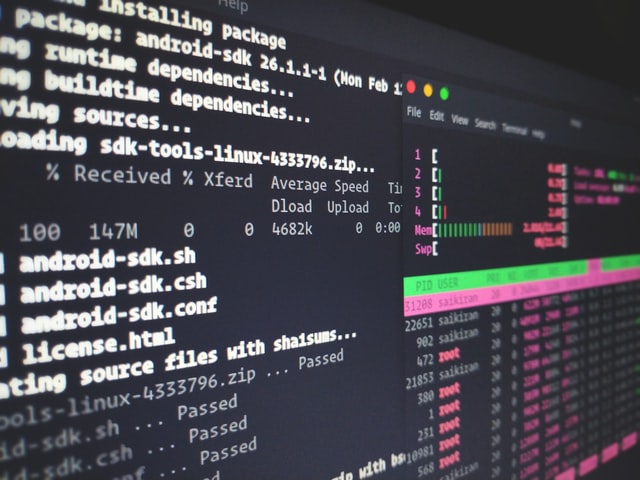
Tour Two. Social Change
Linux: Computers and Community
In 1991, a computer science student at the University of Helsinki named Linus Torvalds sent a note via the Internet to a group of fellow programmers announcing a little project he was working on: an operating system he called “Linux“.
An operating system (OS) is the central brain of any desktop computer, like your Mac or PC. It manages the way the computer works, handles the connection with extra devices like printers, monitors and scanners, and makes sure that people cannot use your computer without your permission.
Most operating systems are developed by companies
that hide the way their programs work so competitors can’t copy them. This makes creating and improving an OS a job only for big companies.
Linus instead chose to share his code with anyone interested in examining its inner workings, and encouraged others to help him improve the way Linux works.
Since Linux was (and remains) free and ran on relatively common and cheap computers, it soon attracted a group of volunteer developers from all over the world who were able to work on the project together — by communicating over the Internet.
Today Linux is a mature, stable and powerful operating system used by millions of people all over the world.. It runs on almost any kind of computer, from watches and tiny handheld devices to massive super-computers.
Because it is free and flexible, it is used in poorer countries all over the world by people who might not be able to afford
computers otherwise, helping to close the technology gap between richer and poorer societies.
By turning Linux into a community effort, Linus shows us that programmers who are willing to share their code can create great software together. Linus helped spark a worldwide revolution in software development.
How did Linus become so interested in computers? Read on to learn what he was doing at your age!
By the age of ten, Linus Torvalds had already discovered that he loved computers – by accident! Linus’s father says that he and his wife never pushed Linus or his younger sister, Sara, to excel. And they certainly did not teach them anything about computer programming.
In fact, the last thing Mr. Torvalds wanted was to see his young son spend his days indoors in front of a computer. But Linus adored working with computers. He preferred it to basketball, ice hockey and even sailing with his dad.
Linus’s grandfather was a professor of Statistical Science. His hands were clumsy and his eyesight was bad, so he asked Linus to become his keyboard operator – and Linus discovered a new passion. By the age of ten, Linus was
hooked on mathematics and computer programming.
Around that time, Linus’s math teacher told his parents that he no longer had anything to teach their son. Linus had already exceeded his teacher’s mathematical capabilities.
Linus’s father thinks Linus might have had it easier than kids do today: back then, computer programs were simple and more easily self-taught. Linus was very good at working with his hands.
When he was eight, Linus received a model ship for Christmas. His father planned to help him build it the following day. But by the time he came home from work — you guessed it — Linus had already built his ship. And it was perfect.
Linus also excelled at handicrafts. When he was ten, Linus sewed himself a shirt and knitted himself a scarf. That’s where it ended though.
When the kids at school made fun of Linus, he stopped making his own clothes.
But who had the last laugh?
Quiz
- What is an Operating System?
- a computer
- all the extra things you plug into your computer
- the company where a computer is made
- the central part of a computer
2. What is Linux?
- a rare Finnish animal
a computer - an operating system
- a student science project
3. What is the importance of a freely available OS for society?
- It runs on almost any kind of computer
- It is flexible, inexpensive and shows the value of collaboration
- It can be used by poorer countries who could not otherwise afford computers
- all of the above
4. What were the signs that Linus was interested in computers at a very early age?
- He preferred basketball and sailing above everything
- He was better at Math than his teacher
- His sister was a good computer programmer
- He failed his math classes

